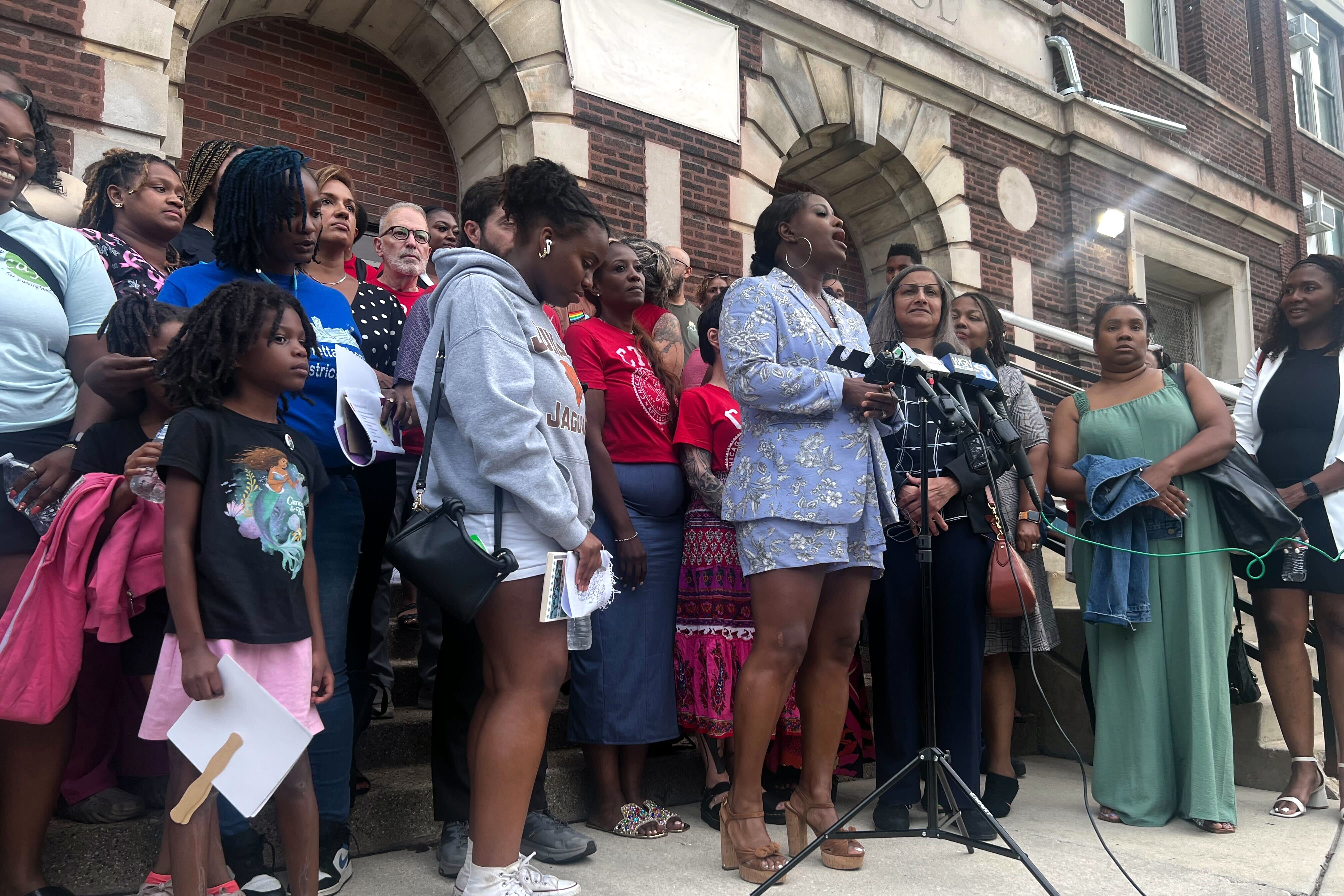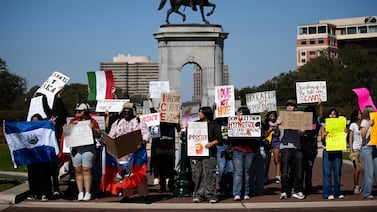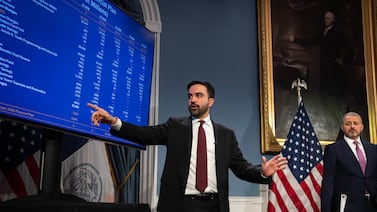Sign up for Chalkbeat Chicago’s free daily newsletter to keep up with the latest education news.
Chicago Public Schools estimates that a chunk of the Chicago Teachers Union’s proposals, including raises for educators, would create a $4 billion deficit for the district by the 2029-2030 school year, officials said Tuesday.
The union, for its part, made recommendations for raising more money to support the district, including increasing taxes on wealthy individuals and corporations, and suing banks for what union officials described as predatory lending practices involving CPS in past years.
Their comments came during a public bargaining session Tuesday at Morgan Park High School on the city’s Far South Side, as part of negotiations between the district and the CTU over the union’s new contract. Those negotiations have not made much progress over the past few months. Tuesday’s session, the third bargaining session held in public, focused on the district’s finances.
Granting just 52 of the union’s 700-plus contract proposals would widen the district’s deficit from a projected $509 million next fiscal year, to roughly $3 billion, said Mike Sitkowski, the district’s budget director. That gap would grow by another $1 billion by fiscal year 2030, he said.
Deficits are already projected for each of the next five years, without the cost of a new contract, CPS officials have said. In order to balance future budgets, the district will have to find more funding or will make cuts to staff and programs, they said.
The Chicago Board of Education passed a budget for this upcoming school year that closed a $505 million deficit through cuts and other savings, but that budget does not include funding to cover the costs of a new teachers contract.
The district did not identify the 52 proposals it considered as part of its analysis, but Sitkowski said the list included the union’s requests for 9% raises and additional staff.
“We believe our educators deserve fair raises, but we must acknowledge what is responsible and sustainable,” Sitkowski said.
Jackson Potter, the union’s vice president, told district officials that highlighting the deficit related to CTU’s contract proposals “sends the message that you can’t meet any of our recommendations,” such as more librarians or more support for bilingual students. Union President Stacy Davis Gates didn’t directly answer a reporter’s question about how much the union’s proposals would cost.
“The price tag is opportunity for Black children, immigrant children, and Latine children,” she said.
Davis Gates credited previous union demands for delivering the post-pandemic student achievement gains that the district often touts. She said she plans to end the fight for funding with this contract, “come hell or high water, and I don’t give a damn who pay.”
Concern about budget challenges has hovered over the contract negotiations this year, as the district grapples with budget deficits as federal COVID relief dollars dry up.
In order to cover additional costs, both CPS and the union have called on the state to provide more than the $25 million funding increase it gave this year. Both parties point a finger at the state’s main school funding formula, under which the district needs an additional $1.2 billion to be considered adequately funded. That figure rose slightly this year after the district enrolled more students learning English as a new language and as the city saw a drop in tax revenue from corporate profits.
Both Gov. J.B. Pritzker and State Superintendent Tony Sanders have said more funding is not coming this year.
Beyond advocating for more state funding, Mayor Brandon Johnson’s administration also encouraged the Board of Education to take out a short-term loan to cover additional costs, which the board and CPS have rebuffed for now.
Asked recently if the district could still take out such a loan, Board President Jianan Shi said “everything is on the table,” declining to elaborate further.
During the bargaining session, the teachers union offered up several recommendations beyond more state funding on how the district could raise money. Apart from more taxes on the wealthy and suing big banks, they also suggested seeking more federal funding and taxing big tech corporations “profiting off our students’ and families’ private data.”
District officials said they want to advocate for more state funding, including to fully cover costs of preschool programs and teacher pensions. The state’s main funding formula already accounts for the fact that the district pays for its own teachers’ pensions.
Reema Amin is a reporter covering Chicago Public Schools. Contact Reema at ramin@chalkbeat.org.






